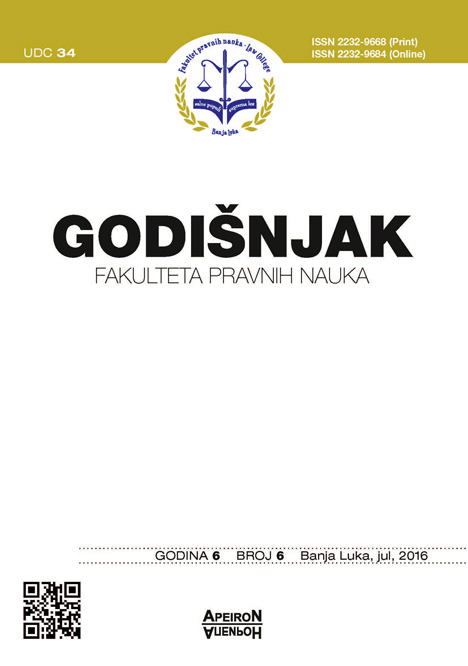Primjena načela fiskalne neutralnosti u presudama suda pravde Evropske unije / Application of Fiscal Neutrality Principle in the Case Law of the Court of Justice of the European Union
DOI:
https://doi.org/10.7251/GFP1606120AAbstract
Neutrality of value added tax (VAT) is not only a theoretical issue and unattainable myth but also a need for all modern economies. Higher degree of neutrality brings to a reduction of distortions on micro, macro and global economic system caused by selective taxation, with positive consequences on capital allocation efficiency at the national, regional and global level. The European Union, as a supranational integration, has mobilised all available legal mechanisms for elimination of harmful practice and policies that jeopardise VAT neutrality in the Member States and at the EU level as well. The EU is aiming at increasing the efficiency of the VAT system and coherence with the global VAT system promoted by OECD. By activities on reforming the EU legal framework in the field of VAT taxation taxpayers in the EU are brought to the level playing field at the EU Single Market and the world market as well. Legal framework at the EU level has been updated directly by amendments to the Council Directive 2006/112/EC and other related Council directives, and indirectly, via comprehensive case law of the Court of Justice of the EU. The practice of the Court and mandatory implementation of its case law indirectly contribute to uniformity of application of the VAT rules, its efficiency and neutrality in relation to position of taxpayers at the EU level. The Court decisions have become a powerful mechanism of supranational intervention in the EU VAT system aiming at achieving a higher degree of harmonisation of VAT system at the EU level. Due to the attitude of the Court that a principle of VAT neutrality has a supremacy over national VAT legislation and rules, the decisions have produced systematic implications for national tax systems as well.Downloads
Published
2016-07-11
Issue
Section
Чланци
